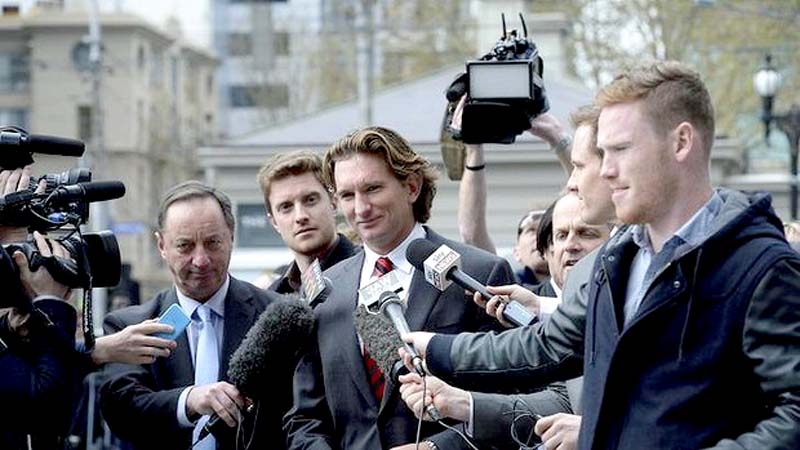This story appears in The Age as an exclusive
Essendon will spurn the opportunity to appeal the verdict in the Federal Court case that found in favour of ASADA and allowed it to proceed with show cause notices for 34 current and former players.
The club’s imminent decision not to appeal Justice John Middleton’s verdict – which dismissed the applications by both Essendon and coach James Hird on September 19 – is despite receiving legal advice that it would win an appeal.
Sources said Hird had been in favour of an appeal – which his legal team also argued that it would win – and that the club’s stance was about far more than the pure legal position. It has been made plain to Essendon that the AFL did not want it to appeal the verdict, in which Essendon not only lost but had costs awarded against it.
Hird’s position is made more difficult by the fact that the players, by and large, want the matter expedited. This is a key factor in Essendon’s decision not to appeal. In choosing not to appeal, the club has weighed up far more than the pure legal position.
The AFL’s legal opinion has long been that the joint investigation with ASADA was lawful – Essendon and Hird argued in court that it was not and applied for the show cause notices against the players to be shut down.
While some players may consider a deal with ASADA – depending on the evidence presented to them – there is still a reluctance among them to take a plea bargain that involves an admission of inadverdent doping. The show cause notices ask the players to explain why they should not be charged with using the banned peptide Thymosin beta-4.
The position of players who are no longer at Essendon – including those at rival AFL clubs such as Stewart Crameri and Angus Monfries and potentially Paddy Ryder – may vary with the current Essendon players, and with those who are no longer in the AFL system. Essendon has 20 or 21 players facing the prospect of infraction notices who are still on the club’s senior or rookie lists.
Essendon’s barrister in the case, Neil Young, QC, has provided an opinion that the club would win an appeal, based on the view that Justice Middleton’s judgement was flawed and did not address the issues raised by Essendon and Hird. Hird’s counsel, Peter Hanks, QC, is understood to have shared this view.
The players made a strong submission to the court, but did not joint the legal action – Middleton encouraged them to do so – in large part because they would risk losing a discount for any penalty from ASADA. Players who provide cooperation can receive a significantly reduced sentence, under the WADA rules.







